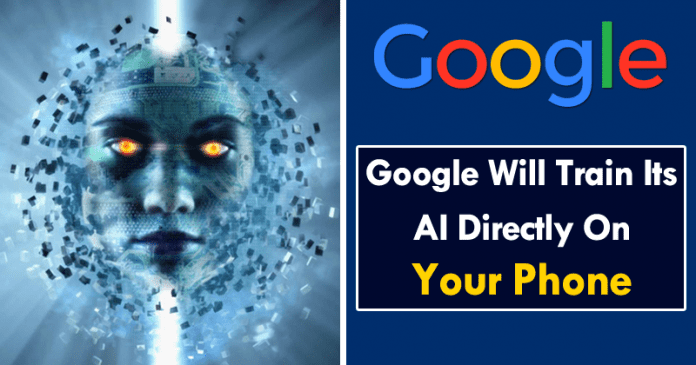Hence, the Mountain View company, Google has begun testing a new system for collecting data from user interaction with its mobile devices, called federated learning, which allows it to learn collaboratively through artificial intelligence to improve our experience with the system. The tech giant Google uses artificial intelligence in our mobile devices to collect user data that allows them to learn from their habits and thus be able to teach their intelligence engines. In fact, all this process is done online and in a way imperceptible for people. However, as the company describes in an official statement on its blog, a new method is being tried that allows decentralizing this work. Thus, through federated learning, the system will not collect user information on Google’s servers but will occur directly on the mobile device. This new method of automatic learning implies that, by not passing the data through the company’s servers, the mobile phone acquires the capacity to implement the improvements with a latency between 10 and 100 times less, without needing to receive an Android update. On the other hand, according to statements by Brendan McMahan and Daniel Ramage (members of the Google Research team), this operation would not imply an increased energy consumption by the device, but would even reduce it.
A complex but beneficial process
A clear example of this process is explained by the operation of the Google keyboard, Gboard, which shows suggestions to the user as he/she enters words. Even through interaction with the user, the user learns and improves its system of recommendations and suggestions over time. In this regard, since the great G have stated that this form of automatic learning has many benefits for users. Not only that even, with this privacy increases by not taking the data out of the device and, on the other hand, the algorithms are updated more quickly by not having to communicate with the servers in the cloud. Finally, the tech giant Google has stated that the process will not hurt at any time neither the battery autonomy nor the performance of the device, because the training process will happen with the device when it will be at rest, connected to the current and a Wi-Fi network. So, what do ou think about this new learning process? Simply share your views and thoughts in the comment section below.
Δ


